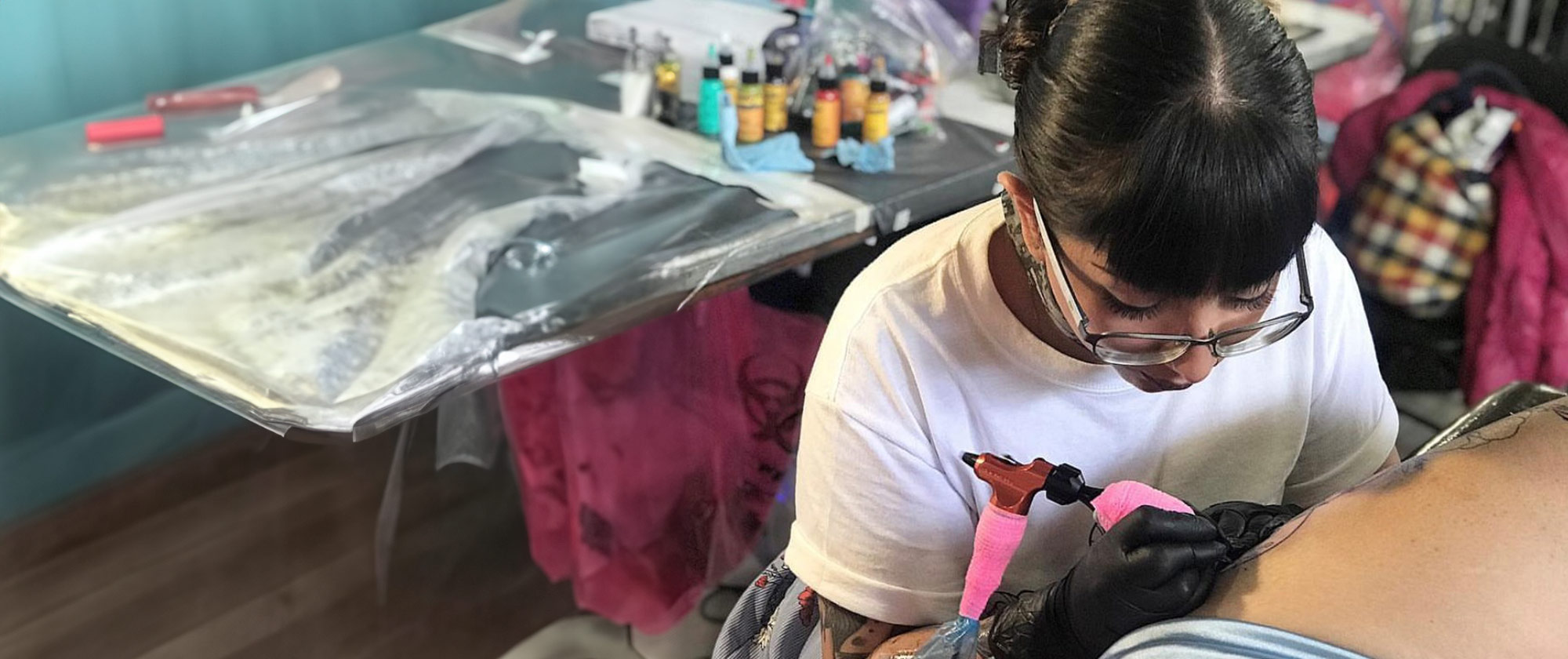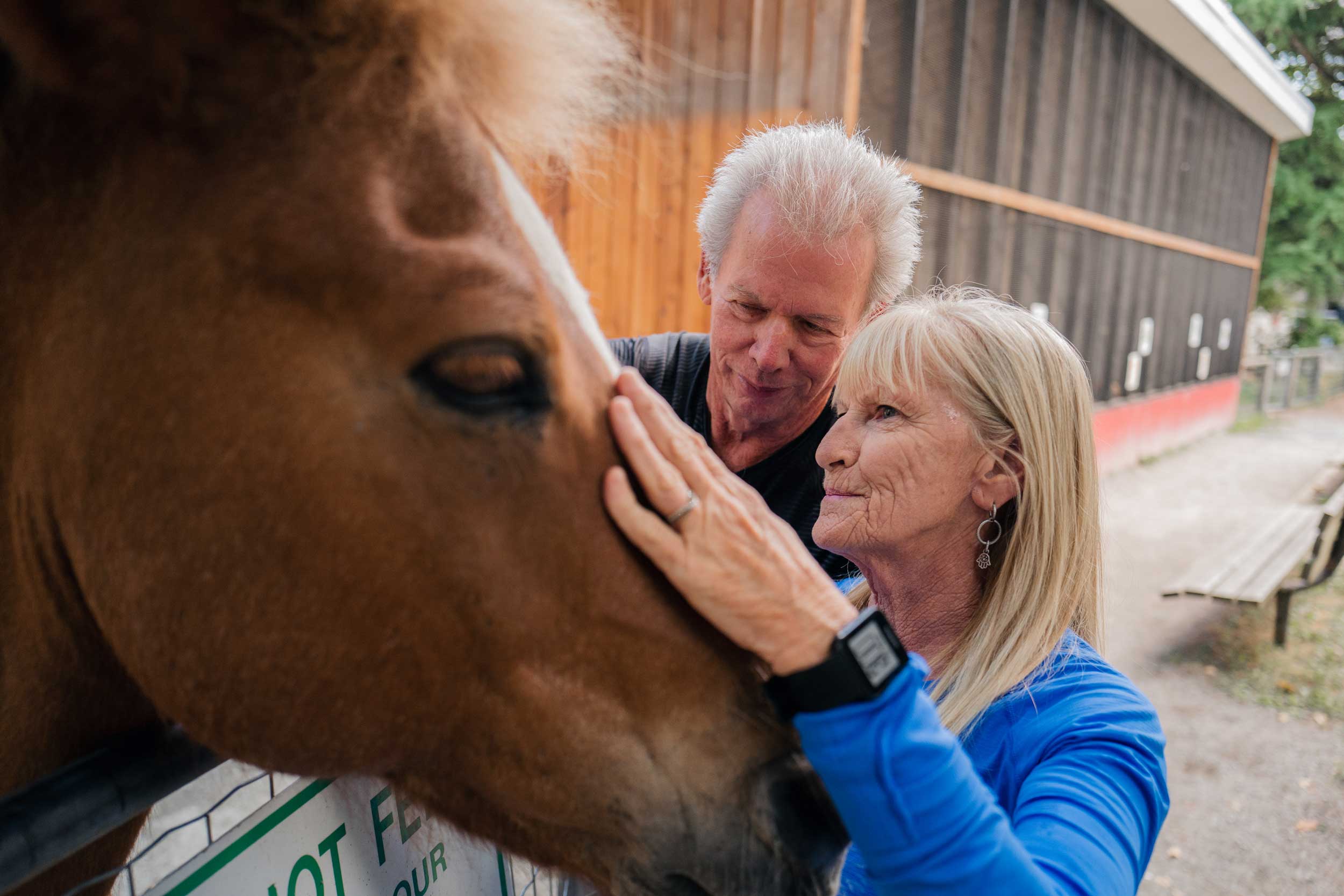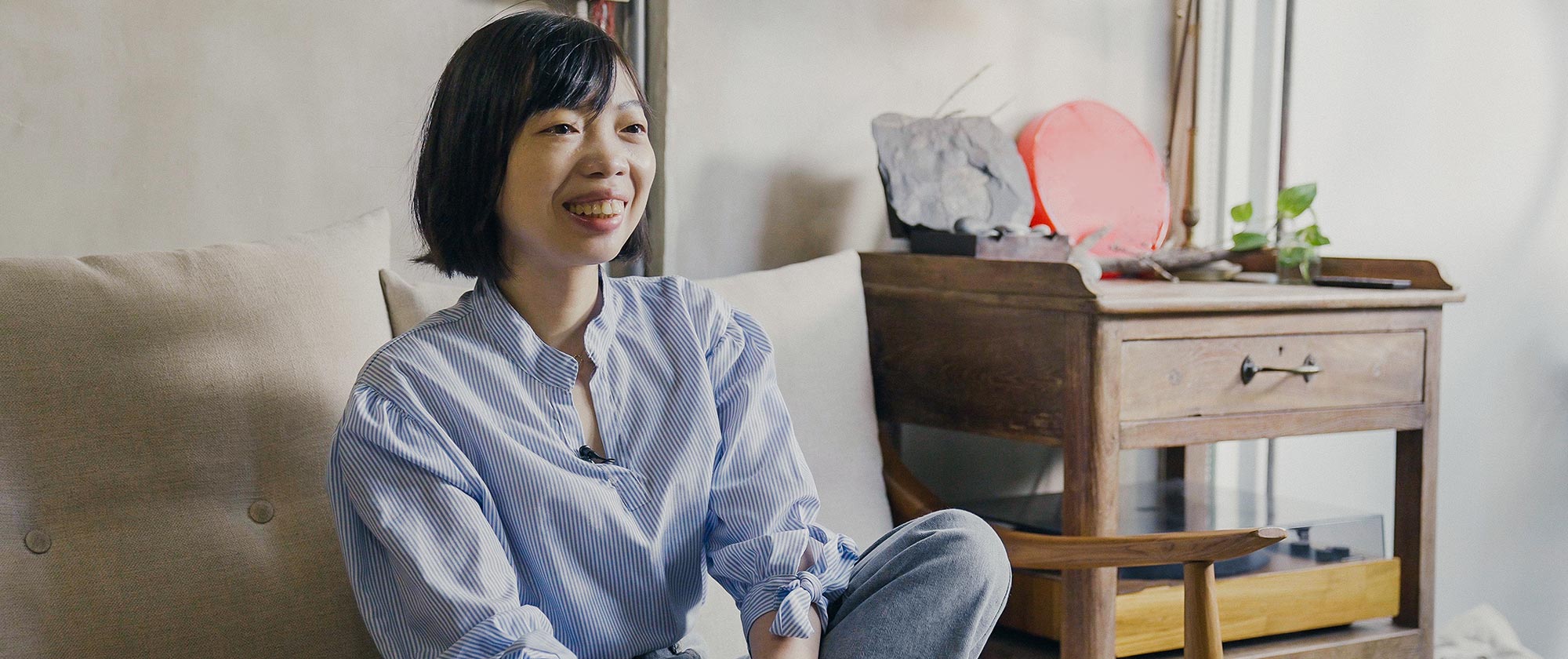Fran Rojas is one of the first tattoo artists in Mexico to participate in Bristol Myers Squibb’s Look for the Spot campaign, where tattooists check for signs of melanoma on their clients. Look for the Spot is one of countless active patient advocacy programs that BMS participates in around the world.
BMS and global advocates partner for patients
By joining forces with patient advocacy programs and influencers around the world, Bristol Myers Squibb helps people just when they need it most.
When Alonso Zepeda, senior manager, Corporate Affairs, shared information at a news conference about a Bristol Myers Squibb program that trains tattoo artists in Mexico to look for signs of melanoma on their clients, some of the journalists were confused.
“They were like, ‘Why are you interested in this? You’re talking about prevention, not treatment,’” Zepeda recalled.
The answer was easy for Zepeda. Advocacy programs like Look for the Spot are an integral part of the company’s commitment to the communities it serves — a way to offer innovative approaches to help people get and stay healthy beyond medications.
Each year, BMS celebrates Global Patient Week to honor patients, who are at the center of the company’s heart and advocacy mission. To show that science and medicine have the potential to give people more time, to make more memories.
This year marks the ninth year for the patient-centered event, a commitment that reaches around the world. And patient advocacy programs are an important part of that reach.
Jasmine Greenamyer, executive director of Global Patient Advocacy, said BMS is one of the first companies to establish the weeklong effort.
“At BMS, we’re very mindful about putting patients at the center of what we do,” she said. "Partnering with the patient community is an essential investment for realizing our mutual goals."
Advocating for patients
Matt Alsante, senior director of Patient Advocacy, Hematology, said it’s vital to include the patient perspective into everything the company does.
“Being committed to patient advocacy means being an active participant in supporting the patient on their entire journey,” he said. “From the research and development of new therapies all the way to the commercialization of medicines, it has become increasingly important.”
His work revolves around establishing long-term partnerships with patient advocacy organizations, working to better identify patients’ unmet needs and supporting the growth of trusted programs that support those needs. It also means forming innovative collaborations with professionals who are trusted by their clients.
“I always say, getting to focus on patient advocacy is the best job in the pharmaceutical industry,” said Alsante, who has spent 25 years working in the patient advocacy nonprofit space.
He understands the importance of having accurate, up-to-date information for patients and their caregivers, which advocacy groups can provide. “Unfortunately, the internet is a sea of misinformation,” he said.
Subscribe to Our stories alerts
Beyond just relevant information about Bristol Myers Squibb's therapeutic areas and innovation, Our stories offer a window into the work our employees do every day for patients.
Chronic myeloid leukemia took Max Rivarola in 1991, before he could celebrate his 18th birthday. Six years later, his mother started The Max Foundation to help families in Latin America with young leukemia patients needing access to medications. The foundation’s reach has grown to 20 countries.
Teenager’s legacy helping generations of patients
One of the partnerships that Alsante coordinates is with The Max Foundation, a United States-based nonprofit committed to health equity in dozens of regions around the world, including Africa, Latin America and the Middle East. The foundation believes people living with cancer should have access to high-impact medicines, no matter where they live. BMS helps that effort by providing access to medications.
The foundation is named in honor of Maxamiliano Rivarola, who spent most of his short life in his home country of Argentina, before being brought to the U.S. for treatment. Chronic myeloid leukemia took Max when he was just 17. But his mother, Pat, knew her son could still impact the world.
She went on to establish the Max Foundation, which has helped more than 1,800 patients in 35 countries.
“They’ve proven in a challenging environment that they have a system to get medications to people who would not otherwise have access,” Alsante said. “To me, it’s a miracle what she (Pat) has put together.”
Tattoo artists look out for melanoma
Fran Rojas is a creative tattoo artist in Mexico, whose works of art include vibrant flowers, precious pets and designs that look they’ve been embroidered into the skin. As a tattoo artist, she sees parts of her client’s bodies they can’t easily see. Places where moles and other spots can easily be hidden.
Rojas joined BMS Mexico’s Look for the Spot campaign, which trains tattoo artists to check their clients for signs of melanoma. She knows moles can be dangerous. Before taking part in the initiative, her grandmother’s boyfriend had a mole that ultimately was diagnosed as melanoma. So, Rojas was interested in wanting to learn how to spot potential signs of cancer in her clients and others.
Alonso Zepeda said Look for the Spot was born out of a discussion about building an advocacy initiative around melanoma. They wanted something that went beyond the traditional press release, which is often quickly forgotten. They wanted something that could make a difference, possibly save someone’s life.
He said some of the tattoo artists were a little skeptical at first, but once they realized the program was created to increase awareness, they were all in. And they’re helping spread the word about it.
Zepeda said the tattoo artists are not only talking with their clients about the program, they’re also sharing it with their peers. “They send us screenshots of their colleagues reaching out to them,” he said.
Brittane Thames, a mobile hair stylist and barber, participates in the Health Education + Reliable Outreach + Empathetic Support (HEROES) program, which includes checking clients like her grandfather, Joe Miner, for signs of psoriasis.
Working with real-life HEROES
In a similar program, hair stylists and barbers are being trained to spot scalp and skin conditions in their clients.
Brittane Thames has been a mobile hair stylist and barber for several years. She heard about the Health Education + Reliable Outreach + Empathetic Support (HEROES) program from a friend who is an ambassador for the National Psoriasis Foundation. The program is offered in the U.S. through the Global Healthy Living Foundation and supported by an independent grant provided by BMS.
Thames is familiar with what psoriasis looks like and the impact it can have on people’s health outcomes. She was diagnosed with the condition at age 13, after her hair stylist saw symptoms. A visit by Thames to the dermatologist confirmed her stylist was correct.
So, she said, “this program definitely fit me.”
Thames performs a thorough scalp analysis on each client, suggesting they see a medical professional if she sees signs of a health condition. The program helps address the potential stigma by creating a safe place for clients.
Seth Ginbserg, co-founder and president of the Global Healthy Living Foundation, said the HEROES program launched in June and is in more than 100 cities in the U.S., with a goal of expanding to 1,000. The program has plans for expansion in Japan, Australia and Canada. He said the long-term objective is to have the program become part of the certification and licensing process for hair stylists and barbers.
Promoting an understanding of IBD
Tina Aswani Omprakash knows what it’s like to live with a chronic disease. She was diagnosed with Crohn’s disease more than 15 years ago and struggled mightily with it.
In addition to starting an advocacy blog about Crohn’s disease, she co-founded the IBD South Asian Alliance. Omprakash wants to promote early diagnosis, improve access to treatment and dispel the stigma that is often connected with IBD (inflammatory bowel disease). The alliance is active in the U.S. and the South Asian diaspora.
Richard Standifer, director of Patient Advocacy, Immunology for BMS, praised Omprakash for cofounding the group, after recognizing some of the biggest unmet needs in the U.S.
Omprakash received the Impact Award in this year’s BMS and Lyfebulb Global Innovation Challenge for her project to further develop initiatives to help meet the medical, surgical, nutritional and psychosocial needs in the South Asian IBD community. Lyfebulb is a patient-empowerment platform that connects patients with industry to support user-driven innovation.
Standifer said Omprakash has helped the group move forward by making herself an integral partner with like-minded programs. One example is working with the American Gastroenterological Association on a program during Digestive Disease Week. It included helping physicians see what “blind spots” they may have, including possibly not hearing the important things their patients are saying.
Legendary basketball player Kareem Abdul-Jabbar shares his unexpected diagnosis with atrial fibrillation as part of the No Time to Wait campaign. This educational campaign is a collaboration between BMS and Pfizer.
Teaming up with an NBA legend for AFib campaign
Kareem Abdul-Jabbar is known around the world as one of the greatest basketball players ever. He is using that notoriety to raise awareness about atrial fibrillation (AFib), with which he was diagnosed. The basketball legend joined the No Time to Wait campaign, which is sponsored by BMS and Pfizer.
Abdul-Jabbar said he initially dismissed the light-headedness and shortness of breath he was experiencing, but ultimately ended up in the hospital and diagnosed with the condition.
More than 9.5 million people in the U.S. are projected to have AFib this year, with many of them going undiagnosed because they dismissed the symptoms. Doing so can lead to serious health issues, including a significantly increased risk of having a stroke.
The No Time to Wait AFib campaign has been named a finalist in this year’s PM360 Trailblazer Awards, which recognize outstanding achievement and innovation in healthcare marketing.
Having a legend like Abdul-Jabbar talk about AFib and how it impacted his life brings awareness to a much larger audience, including people who normally might not receive information about the condition. And, as patient advocates know, awareness can save lives.
About Bristol Myers Squibb
Bristol Myers Squibb is a global biopharmaceutical company whose mission is to discover, develop and deliver innovative medicines that help patients prevail over serious diseases. As global citizens, we work sustainably and responsibly to create a positive impact in the communities where we live and work.



